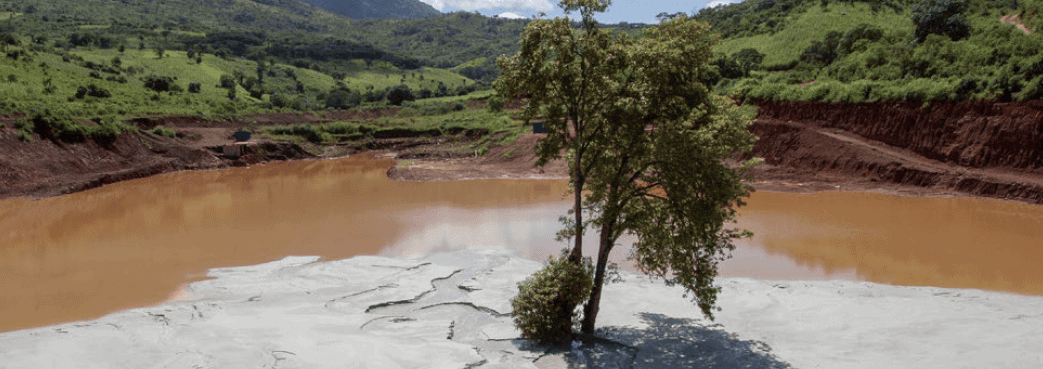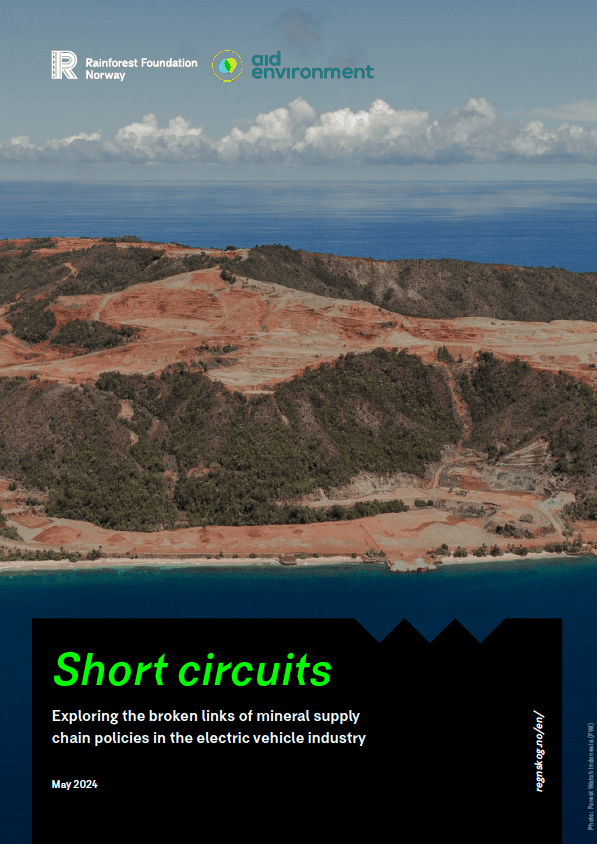Short Circuits: Exploring the Broken Links of Mineral Supply Chain Policies in the Electric Vehicle Industry


This report, a collaborative effort between Rainforest Foundation Norway and AidEnvironment, investigates the due diligence policies and practices within the electric vehicle (EV) industry, focusing on major automakers and battery manufacturers. It examines commitments in three critical areas: deforestation and biodiversity, human rights and environmental due diligence, and Indigenous rights in supply chains.
Mining for EV battery minerals, such as bauxite, iron ore, copper, manganese, and nickel, drives deforestation globally. The report highlights a concerning lack of social and environmental commitments in mineral supply chains across EV battery producers and automakers alike. It identifies significant gaps, or ‘broken links’, between the policies of automakers and battery manufacturers. Many key players in the EV industry lack adequate policies and measures to protect biodiversity, respect Indigenous rights, and prevent deforestation in mineral supply chains.
The report emphasizes the urgent need for closer attention to transition minerals like nickel, cobalt, manganese, copper, or lithium within due diligence approaches. It calls for increased focus on environmental impacts, particularly addressing deforestation and biodiversity loss, in company policies and commitments. Furthermore, the report stresses the importance of enhancing protection for the rights of Indigenous Peoples (IP) and local communities (LC), including obtaining Free, Prior, and Informed Consent (FPIC), alongside meaningful engagement and remediation actions. Improved transparency and disclosure practices are also deemed essential to enable better cross-checking and verification of data related to mineral supply chains. Accelerated efforts in mineral recycling and the adoption of circular economy approaches are needed to alleviate pressures from sourcing primary minerals, underscoring the importance of sustainability in the EV industry’s supply chains. Specific recommendations to downstream and upstream companies, standard setters and assurance schemes, investors, and governments and policy makers are given in the report.
